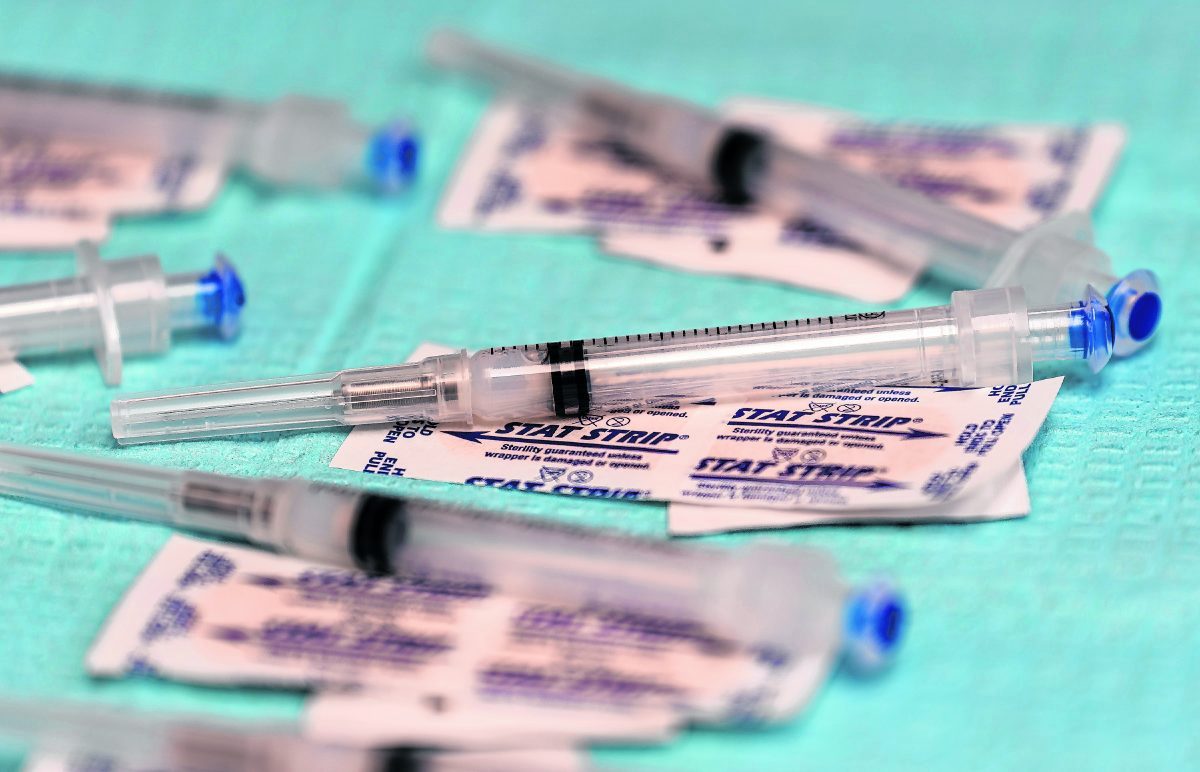Indiana health officials are halting the use of the single-dose Johnson and Johnson COVID-19 vaccine around the state after federal officials recommended a pause in its use to investigate reports of potentially dangerous blood clots.
The Indiana State Department of Health said it was switching the mass vaccination clinic being held at the Indianapolis Motor Speedway to the two-shot Moderna vaccine. State officials said Tuesday afternoon the clinic will continue through Sunday. The department said it was working with other clinics around the state that planned to give the Johnson and Johnson vaccine so they could provide alternative vaccines.
State health department chief medical officer Dr. Lindsay Weaver said she wasn’t aware of anyone from Indiana being among the six reported cases of blood clots being investigated out of more than 6.8 million doses of the JandJ vaccine administered in the U.S.
Local health officials don’t expect to see any interruptions.
All vaccine appointments with Moderna and Pfizer will continue as normal, and those are the only vaccines available in Johnson County. Those vaccines also make up the majority of those administered in the United States.
Right now, the Johnson County Health Department does not expect the Johnson and Johnson pause will impact the local supply of Moderna or Pfizer vaccines, said Betsy Swearingen, health department director.
Though Johnson Memorial Hospital occasionally gets a supply of the Johnson and Johnson vaccine, the Franklin hospital did not have any on hand Tuesday, said Dr. David Dunkle, president and CEO.
Johnson and Johnson vaccines were administered Monday at Franklin College through a partnership with the hospital, and Johnson and Johnson vaccines were administered at the Johnson County jail through the jail’s medical provider.
All six impacted individuals were women between 18 and 48, according to a joint statement from the agencies.
The federal agencies are recommending that people who were given the Johnson and Johnson vaccine who are experiencing severe headaches, abdominal pain, leg pain or shortness of breath within three weeks after receiving the shot contact their health care provider.
Flu-like systems within the first few days of vaccination are part of the body’s normal immune response to the vaccine. Those symptoms include pain, redness and swelling in the arm where you got the vaccine, as well as tiredness, headache, muscle pain, chills, fever and nausea, officials said.
Before Johnson and Johnson vaccinations can continue, federal agencies will look more closely at the circumstances of the side effects and determine if those are directly related to the vaccine.
Federal regulators will meet to discuss the side effect Wednesday and do not expect the pause to last long.
“I’d like to stress these events appear to be extremely rare. However, COVID-19 vaccine safety is a top priority,” FDA Acting Commissioner Janet Woodcock said at a news conference. “We expect it to be a matter of days for this pause.”
No severe side effects have been reported locally from any of the three FDA-approved vaccines, and those who have already been vaccinated with the Johnson and Johnson vaccine are likely safe, as the side effects are rare, Weaver said.
Everyone who is vaccinated is asked to report side effects through the CDC’s V-Safe reporting platform, which tracks short- and long-term side effects from the vaccines.
“I think, again, I want to underscore this is six cases out of 6 million,” Weaver said. “This is how the process is supposed to work. This is why we report adverse reactions.”
The European Union regulators did a similar pause of the Astra Zeneca vaccine due to blood clots, and has since resumed vaccinations. Now, vaccinations are continuing in Europe with blood clots listed as a side effect.
The state is still making plans about what to do about future IMS clinic dates, and that decision will largely depend on how long the pause lasts, Weaver said.
So far, the goal is to keep appointments at IMS and offer a different vaccine. More information will likely be available in the coming days, she said.
<em>The Associated Press contributed to this report. </em>





